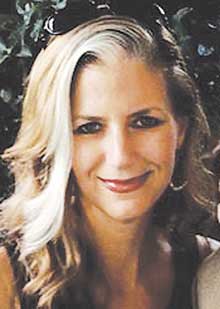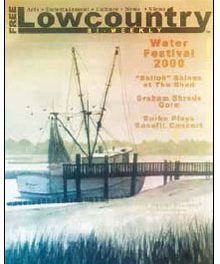 By Margaret Evans, Editor
By Margaret Evans, Editor
I think I’ve mentioned this before. Whenever I find myself scrambling around for a column topic – which happens more than you’d imagine, given my delightfully opinionated nature – I can always count on my husband to deliver the following advice: “Write about the outrage.”
This is a little joke we share, but he’s serious. Jeff loves it when I write about the outrage – any outrage, but especially the outrage du jour. He thinks I’m at my funniest and most incisive when I write about the outrage. (The man likes me snarky; what can I say?) And let’s face it, there’s always plenty of outrage, so it’s easy pickin’s. You never run out of material.
The problem with writing about the outrage is that you run the risk of stoking it – not just out there in the world, but in your own heart, too. Oh, it can be wicked fun, but I made a vow long ago never to use my writing in the service of wickedness. Of course, it still happens from time to time, ‘cause I’m a natural-born bad girl, but I do try. I pray the Lord’s Prayer regularly, and when I get to the words “lead us not into temptation,” my cheeks just burn. That “us” is me, and the outrage is possibly my worst temptation.
So, I was stumped this week, and the outrage… it beckoned. I started this piece the day after Thanksgiving, and already the Rockwellian images of happy families at table had given way, on social media, to angry posts about Syrian refugees, college campus rebellions, and Donald Trump’s latest verbal offense. I popped over to Facebook for a writing break – I do that when I’m stumped – only to find there’d been another shooting, this time at a Planned Parenthood center. Great. This meant all sorts of people would be outraged for all sorts of reasons. Some tragedies temporarily unite us – think Paris, before the refugee situation became the focus – but most just set us to bickering from the get-go.
By the time you read this, we’ll know more about the Colorado Springs gunman. As I write, we know only that he’s a “white male in a trench coat,” which means my friends on the left are already having a field day. I just saw a cartoon on Facebook featuring a bunch of fat, hapless white people wearing tee-shirts with slogans like “No Refugees” and “Muslims are Terrorists.” The tacky pudgy whiteys are gathered around a bleeding gun shot victim; they’re grinning vapidly, one of them shouting, “Nobody panic! The shooter was a white guy!”
Nice. In the age of outrage, it’s never too early to go political.
Since Team Right and Team Left can’t bear to agree on anything anymore – and because we all live for the outrage – everything must be a competition now. A shooting at a healthcare center can’t just be a terrible thing we all mourn together; it has to score political points for somebody, and fast. As of this moment, this tragedy clearly goes to Team Left – white man, gun, Planned Parenthood, etc. Every time ISIS attacks, Team Right gets to chalk one up. (They’ve been warning us about the coming caliphate for ages, right?)
It’s all so disheartening and depressing, this blaming and one-upping. And it’s exactly where following the outrage leads. I know this, and I know it well. And yet . . .
Look what Donald Trump said this time!
Who can resist?
Well. It’s Advent now, so I’m going to try. ‘Tis the season, and I plan to double down on ignoring the outrage – reading about it, writing about it, even thinking about it.
But wait. Maybe it’s more a matter of putting the outrage in perspective? Two things happened today, when I was halfway through writing this column, that kind of spun my head around. In fact, this column has just changed course midstream. Surprise!
First, I was looking over the lyrics to my choir’s anthem for Sunday. (When I’m stumped, I’ll do anything to avoid writing.) You know the hymn. It’s an Advent standard: “O Come, O come, Emmanuel . . . and ransom captive Israel.”
So, I’m musing on these lyrics, this plea of the ancient Israelites awaiting the Messiah who would come and free them from captivity – and, okay, maybe I’m singing a little – and I suddenly remember that the word “Israel” means “Wrestles with God.” (Isn’t that great? “Wrestles with God.” I’d forgotten.) And then this idea dawns on me, and I’m no longer picturing the ancient Jews or the early Christians or even the 15th century Christians who wrote the first version of this hymn. Instead, I’m seeing all of us – 21st century politicians and pundits, preachers and teachers, Democrats and Republicans, social justice warriors and social media soldiers . . . all of us. And it occurs to me that this very old hymn about an even older civilization is a song for our time – and every time – because we’re all “captive Israel.” We’re all wrestling with God. Even those who don’t believe in God, they’re wrestling with some ideal notion of goodness and truth and justice . . . and its failure to materialize. The kingdom, it seems, has not yet come, and some folks are pretty ticked off about it. You might even say they’re outraged.
“If the whole universe has no meaning, we should never have found out that it has no meaning,” wrote C.S. Lewis. “Just as, if there were no light in the universe and therefore no creatures with eyes, we should never know it was dark.”
Likewise, if humans didn’t naturally long for peace, truth, and justice – if those ideals weren’t dancing in our heads like visions of sugarplums – there would be no outrage. So, in any society but Utopia – and who actually believes in that? – the outrage is a sign of spiritual health.
Am I right?
Oh, I don’t know. I’m still not a big fan of the outrage. It flusters me and makes me uncomfortable. It forces me to reexamine what I think and reevaluate what I believe and get my information straight . . . and that’s all such a bother. Plus, to this born-and-bred southern girl, the outrage just seems so rude. Where are its manners?
While pondering this semi-revelation – this possibility that the outrage, though ill-mannered, might have a decent heart – I decided to go for a walk. Clear my head, get some fresh air, escape the judgmental gaze of my computer screen. It was gorgeous outside, and I put the outrage – along with this column – out of my mind to revel in the Indian Summer day . . . the blooming camellias and the confused azaleas (also blooming), the orange leaves entwined in Spanish moss, the monarch butterflies darting about . . . Everything as it was meant to be. No outrage in sight. Perfection.
As I neared the end of my walk, I began thinking about the outrage again, and about finishing this column. I wasn’t feeling snarky anymore (sorry, honey), and something like an insight was gnawing at my noggin. It was this: My personal “outrage” challenge – as someone who doesn’t put much faith in politics – is to love those people who do, to honor the goodness behind their outrage, and to stop being so dang outraged by it. Tada!
So there was that. But here’s the other thing that happened: As I approached my house, I heard a sound I hadn’t heard in a very long time, an otherworldly, reverberating “knock knock knock” that could only mean one thing. A pileated woodpecker. I spotted him right away, near the top of a laurel oak, and watched with fascination as he went to noisy work, his red crown bobbing in the dappled sunlight. As I stood mesmerized, I heard another “knock knock knock,” and was stunned to see another woodpecker a few trees over. (I rarely see these birds at all; maybe one every few months, if I’m lucky.) As the gift of this double sighting settled over me like a spell, it happened – “knock knock knock” echoed somewhere down the street. Only it wasn’t an echo . . . it was a third woodpecker. Suddenly, the other two flew from their trees, and I watched as they followed the sound to a third oak, where they joined the other bird. And there they were, all three of them, a splendor of red, black and white, just “knock knock knocking,” as their kind always have, in search of that which sustains them.
And all I could think of was this: “Knock, and the door shall be opened unto you.” And I knew that it had been for me, yet again.
So may it be for all of you, whenever you knock.







